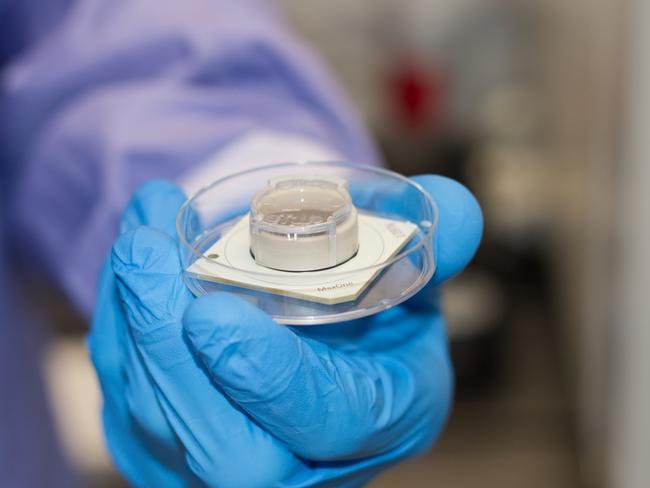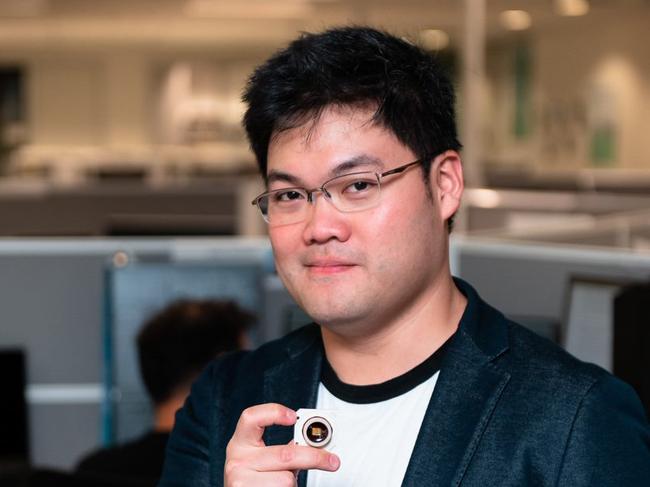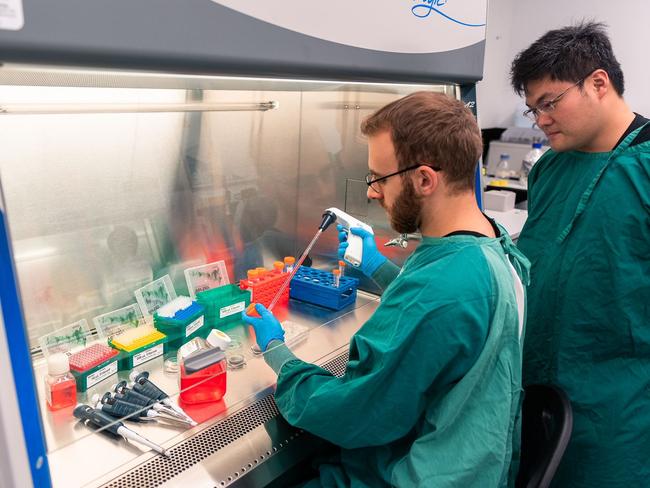Aussie start-up ‘DishBrain’ merges AI with human brain cells
Melbourne company Cortical Labs has created a biological form of AI that has the potential to revolutionise medicine and drug discovery.
Health
Don't miss out on the headlines from Health. Followed categories will be added to My News.
An Australian start-up has fused live human brain cells with silicon to create an Artificial Intelligence (AI) that could help personalise medical treatment to an individual’s DNA.
Melbourne company Cortical Labs has created a biological form of AI that is trained to perform tasks through pulses of electricity.
‘DishBrain’ is grown in a petri dish from clusters of donor brain cells, resulting in an organic AI system that is a DNA clone of the donor’s brain.
DishBrain first proved its intelligence in 2022 by successfully learning and playing the arcade game Pong. Last year the company received a $600,000 grant from the Office of National Intelligence to develop and scale DishBrain.
Cortical Labs CEO Hon Weng Chong said the company has been exploring using the model as a surrogate testing brain to observe how an individual will respond to medication.

University of NSW’S Professor Toby Walsh, who specialises in AI and is a member of the expert group advising the government on AI regulation, acknowledged DishBrain might sound alarmingly similar to the plot of a Sci-Fi movie, “these are natural fears to have.”
But Dr Chong said the public can be excited about DishBrain’s benefits, particularly its potential to revolutionise personalised medicine and drug discovery.
In a recent study awaiting peer review, researchers administered epilepsy medications to DishBrain and found the system displayed different cognitive effects from the drugs depending on the DNA of its brain cells.
“The study found some drugs produce more side effects like brain fog than the other ones based on an individual person’s genome. So we’re excited … hopefully this could be a tool to help with more personalised medicine.” Dr Chong said.
DishBrain also has promising applications for drug discovery.

Cortical Labs is currently collaborating with UK biotech company bit.bio to create models which would be used to test and find drugs to treat and reverse Dementia and Alzheimer’s.
While DishBrains’ benefits are numerous, so are the concerns that come along with creating artificially intelligent “brains”.
One concern is whether DishBrain could become conscious.
Dr Chong said his team are cognisant of the “potential of creating a conscious system … but we do think we are quite far away from doing it.”
Monash Professor of Philosophy and consciousness researcher Tim Bayne said “we can be reasonably confident, but perhaps not certain, that the DishBrain itself isn’t conscious,” adding that it will become harder to say as the system grows in complexity.
Dr Chong said Cortical Labs works closely with ethics experts to monitor their work and ensure it aligns with “society’s current ethical standards.”

He also acknowledged there is a lack of formal regulations in Australia for managing the risks of a technology like DishBrain.
“(Regulators) take a while to wake up and understand what’s going on,” Dr Chong said.
Professor Walsh said while he believed Cortical Labs has been “doing all the right things,” to ensure the safety of DishBrain, formal regulation of emerging technologies is needed, and Australian regulations are “playing catch up” with the rest of the world.
Prof Walsh argued the visible enforcement of strong regulation is crucial to ensure the public will be able to adopt and benefit from emerging AI technologies.
He said fears about the potential harms of emerging technologies should be a key factor in the development of regulations.
“There’s this idea that regulation stifles innovation, (but) it’s quite the opposite … I think you need to ensure you have the public’s trust,” Prof Walsh said.




